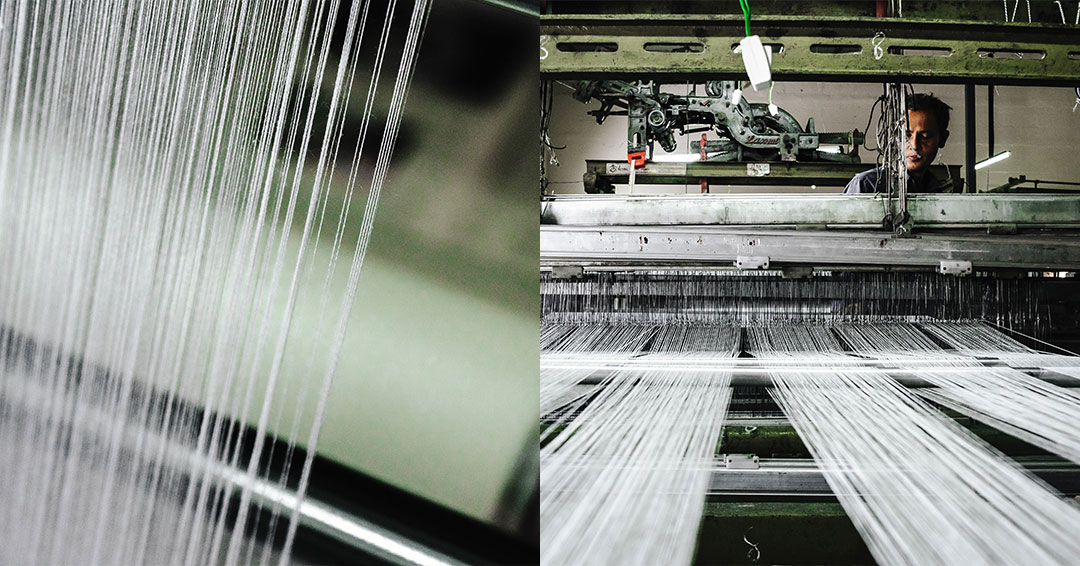A good yarn: How an ethical Nepalese cashmere company is changing the industry
Nepal has become synonymous with the word ‘cashmere’ as it became one of the country’s most successful exports around the world in past decades.
However, success, combined with global warming, is now threatening the industry as a whole. Fortunately, one Nepalese cashmere company is working to change things – through sustainable and ethical practices.
Most of us have heard of ‘pashmina’, which was the name of a family company that became one of the largest cashmere manufacturers in Nepal. The company focused on fabricating only the highest quality cashmere products with utmost integrity and high level of business ethics.
However, due to discrepancies in legal terms abroad and the local name in Nepal, others started selling counterfeit cashmere, which is often mistaken as pashmina. These malpractices and a decade long Maoist insurgency greatly affected the cashmere industry and today, Nepal only exports a fraction of what it used to export in early 2000s.


Cashmere - a precious and fast-disappearing resource.
Unfortunately, Nepal hasn’t been immune to the ravages of climate change. The grasslands of the Himalayan Mountains and the Gobi Desert, where 90% of the world’s cashmere is produced, are dying at a drastic rate. Fast fashion brands didn’t help, as their competitive business structure put an incredible pressure on cashmere farmers and manufacturers.
Combined, these factors have led to a dramatic decrease in the quality of cashmere, with the yarn degrading every year in finesse and softness. If drastic changes aren’t made now to improve their environment, consumers won’t be able to wear a beautiful cashmere sweater tomorrow.
Which is why my supplier has chosen to produce cashmere in the most sustainable manner possible. With an ethos of ‘sustainability at every turn’, the family believes that a holistic approach across the entire cashmere industry is the only possible way to control quality.

Improving incomes, education and lives
With a goal of assuring the quality of cashmere and creating a sustainable future for this precious commodity, my supplier has built a vertically integrated supply chain, which means that they control the whole process - from grazing goats to manufacturing. They’re directly involved in the farming process, combing, de-hairing and spinning the cashmere yarn to maintain quality.
Their holistic approach has removed the ‘middle man’ involved in cashmere trading, so that their cashmere farmers receive the maximum financial benefit. Furthermore, an incentive-driven supply chain assures fair and ethical practices at work, both on their farms and in their factory.
Importantly, their team of workers comprises both men and women. A Nepalese salary stands at around $1500 a year, which makes it very difficult to raise a family – and there has traditionally been a huge disparity between a salary of a woman and a man. The company provides both men and women with a competitive salary, and also encourages them to provide their children with proper education.

Safe, sustainable, certified
This company has been well recognised for their commitment to excellence and safety throughout the years - and they were proud to tell me all about it!
Their cashmere was one of the first in Nepal to be certified as a Chyangra Pashmina Company – this is a Nepal Government trademark recognised in over 40 countries and assures product quality and ethics in the workplace - including being child labour free, empowering women, and providing a safe working environment.
What’s more, all of their cashmere yarns are certified by SGS, a multinational company headquartered in Geneva, Switzerland, which provides inspection, verification, testing and certification services. And all of their cashmere products are dyed with high quality, azo-free dyes to maintain the highest quality and durability (azo dyes are potential carcinogens).
Forward-thinking cashmere suppliers like this are making such as remarkable difference. When you choose ethical cashmere, you’re choosing ‘a good yarn’ that helps sustain Nepal’s environment and workers – and the future of the cashmere industry.
#ethicaledit #agoodyarn #cashmere #sustainingfarmers